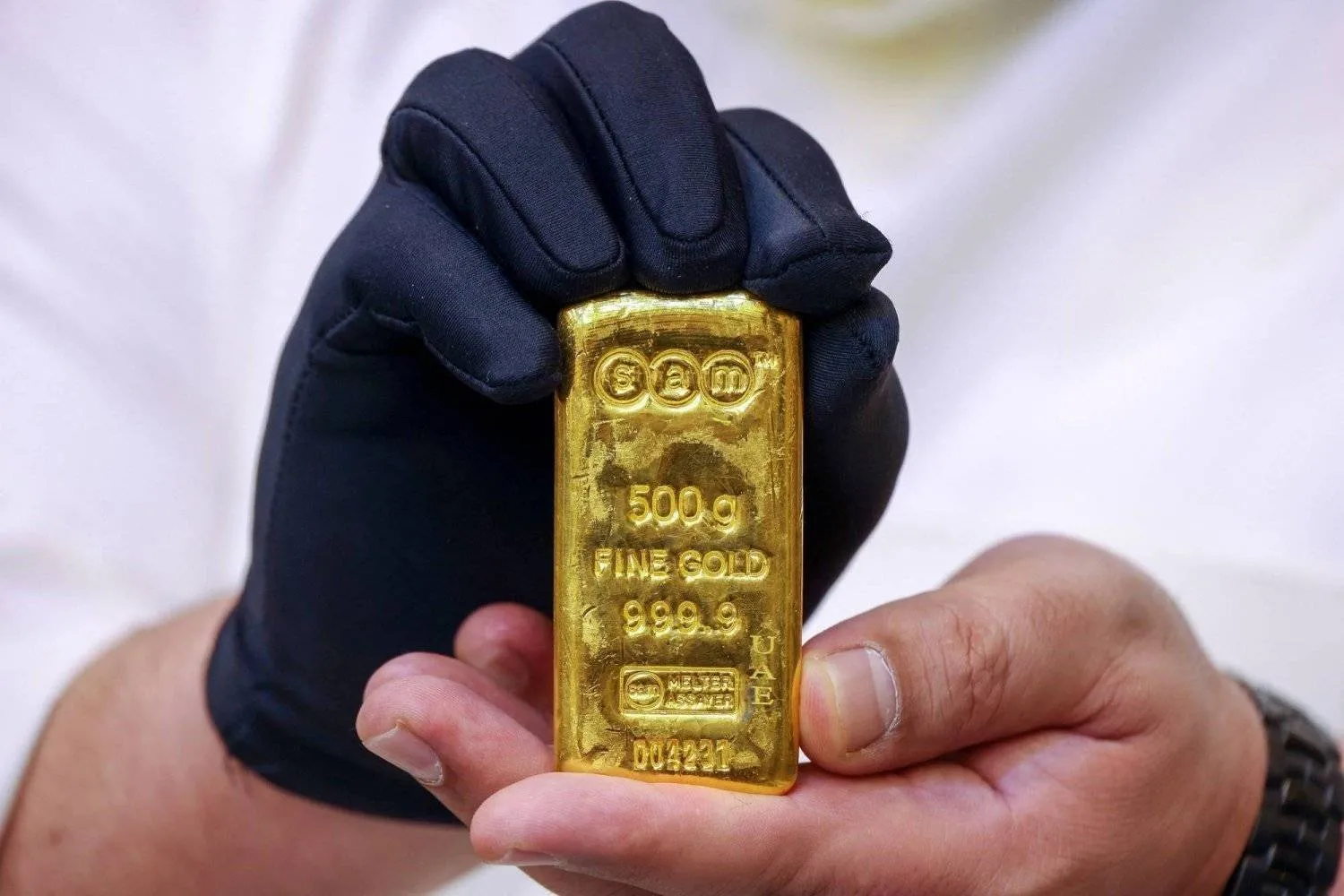Gold prices firmed on Monday as the dollar eased following US President Joe Biden's decision to withdraw from the 2024 presidential race, with investors turning to bullion as a hedge against an uncertain political and market outlook.
Spot gold rose 0.2% at $2,405.40 per ounce, as of 0510 GMT, while US gold futures gained 0.3% to $2,407.20, Reuters reported.
The prospect of rate cuts and political uncertainty in the United States are supporting gold prices, and conditions are in place for gold to see another record high before the end of 2024, said Kyle Rodda, a financial market analyst at Capital.com.
Making bullion more attractive to buyers holding other currencies, the dollar eased in the initial reaction to US President Joe Biden abandoning his reelection bid, clearing the way for another Democrat to challenge Donald Trump.
When accepting the Republican nomination on Thursday, Trump reiterated his promise to cut corporate taxes and interest rates. Analysts also expect a Trump presidency would make for tougher trade relations, which could result in inflationary tariffs.
"I think there is an almost unstoppable process of decoupling between the US and China, it will only become more severe or accelerate if it is a Trump presidency. Gold will certainly benefit from greater geopolitical tensions," Rodda said.
Prices scaled an all-time high of $2,483.60 last week on increased chances of US interest rate cuts this year, with markets pricing in a 97% chance of a cut in September, according to the CME FedWatch Tool.
On the data front, the main focus this week will be on Friday's US personal consumption expenditures (PCE) figure and other data including July S&P Global flash PMIs, advance second-quarter GDP, and weekly jobless claims.
Among other metals, spot silver fell 0.5% to $29.11 per ounce, platinum slipped 0.3% to $959.99, while palladium rose 1.1% to $916.18.
Safe-Haven Gold Firms as Biden Move Sparks Market Uncertainty

A jeweler shows a gold bar at his shop in downtown Kuwait City on May 20, 2024. (Photo by YASSER AL-ZAYYAT / AFP)

Safe-Haven Gold Firms as Biden Move Sparks Market Uncertainty

A jeweler shows a gold bar at his shop in downtown Kuwait City on May 20, 2024. (Photo by YASSER AL-ZAYYAT / AFP)
لم تشترك بعد
انشئ حساباً خاصاً بك لتحصل على أخبار مخصصة لك ولتتمتع بخاصية حفظ المقالات وتتلقى نشراتنا البريدية المتنوعة







